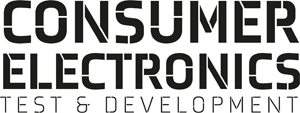TÜV Rheinland, which claimed it is among the first ATLs in the world, will support customers with Wi-Fi Alliance certification across all regions.
Wi-Fi Alliance is a network of companies that drive global Wi-Fi adoption and evolution. Its work includes the development of innovative technologies, requirements and test programs that help ensure Wi-Fi provides users the interoperability, security and reliability.
One of the main services to be provided by the company will be certification in Wi-Fi 7, the wireless protocol for high bandwidth data transfer, which is expected to start operating in 2024. Products are under development that will utilise expanded capabilities, considering the increased internet transfer speeds becoming available and more common usage of high-definition video and VR applications.
Wi-Fi 7 supports a maximum throughput of 30Gbps and reduces latency for high network demands of 4K & 8K video streaming applications. It is a standard for a much faster, more capable and efficient Wi-Fi, which will minimise latency in streaming games, and boost augmented and virtual reality by having a more stable connection, according to TÜV Rheinland.
Director of Wireless Services at TÜV Rheinland North America David Spencer remarked: “For IoT Manufacturers it is essential to have Wi-Fi 7 certification during and after the production of any device, whether Bluetooth devices, computers, laptops, phones, cameras, medical devices, headsets or PDAs. That way, they ensure that it meets the legal requirements of the markets, [which allows] faster access to trade, reduces costs, provides greater consumer satisfaction and higher volumes [to be] traded.”
The global economic value of Wi-Fi in 2023 was estimated to be more than US$3.5 trillion and is expected to grow to US$5 trillion by 2025, according to Wi-Fi Alliance.

